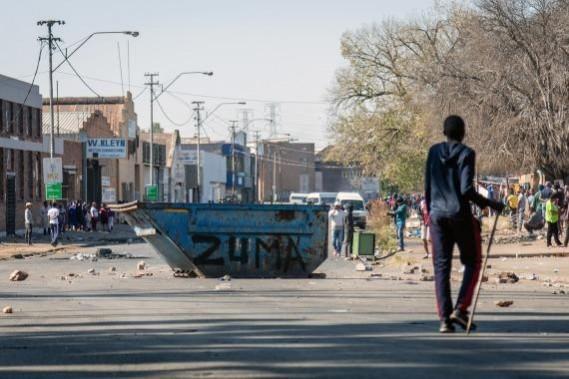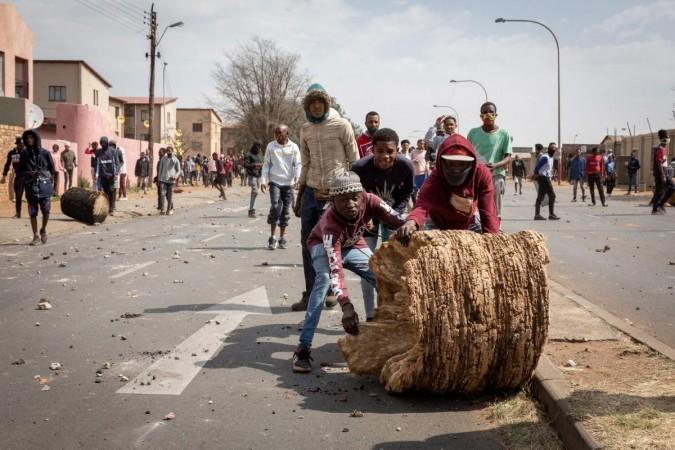The violence and looting against people with Indian origin in South Africa over the past week were planned, South Africa President Cyril Ramaphosa alleged in his first visit to the worst-affected KwaZulu-Natal province.
A total of 117 people have lost their lives during violent protests which have been taking place for a week in South Africa, said Acting Minister in the Presidency Khumbudzo Ntshavheni. He said 26 deaths had been recorded in Gauteng, while 91 lives were lost in KwaZulu-Natal. This is South Africa's worst post-apartheid era violence.
Indian external affairs minister Dr S. Jaishankar said that he had spoken with his South African counterpart, Dr. Naledi Pandor on the issue and was assured of "early restoration of normalcy and peace was her government's overriding priority."

Acting Minister in the South African Presidency Khumbudzo Ntshavheni, addressing reporters on Thursday, said the situation is improving in Gauteng province while KwaZulu-Natal is still volatile but was slowly moving toward stability. A total of 2,203 arrests were made in Gauteng and KwaZulu-Natal (KZN). Among them, 725 were in Gauteng and 1,478 in KZN.
She said the government was concerned over the supply chain and movement of goods from Durban and Richards Bay ports to various destinations for the main routes have been blocked by protesters with stones and other dangerous items over the past few days.
"SAPS (South African Police Service) are providing escorts for the transportation of the supplies of oxygen, medicines and other key goods that have to reach all parts of the country," said Ntshavheni.
She said police have arrested one of the 12 people who were suspected of inciting people to commit crime. "The South African Police Service tracking team has increased the surveillance of the remaining 11," she added.
With regards to the deployment of 25,000 soldiers, 10,000 were on the ground as of Thursday. "It is quite clear that all these incidents of unrest and looting were instigated... There were people who planned it and coordinated it," Ramphosa said on Friday.
But he did not specifically blame any party or group, only saying that his government has arrested more than 2,200 troublemakers, including several 'instigators'. "We are going after them, we have identified a good number of them, and we will not allow anarchy and mayhem to unfold in our country," Ramaphosa told mediapersons.
Indian origin people
He said that Indian origin people are 'very important' to the country, its economy and society. "They will be defended, they have no reason to worry," Ramphosa said.
The South Africa government had said on Thursday that one of the suspected instigators had been arrested and 11 were under surveillance. In all, 2,203 people have been arrested during the unrest for various offences, including theft.

Ramaphosa did admit, however, that his government could have acted "quicker" to prevent the unrest and expressed concerns over the growing racial tension in KwaZulu-Natal.
Protests broke out a day after Ramaphosa's predecessor Jacob Zuma, who wields support among the poor and loyalists in the governing African National Congress (ANC), began a 15-month jail term for refusing to testify to a corruption investigation.
The agitations quickly turned into looting as crowds pillaged shopping malls and warehouses, hauling away goods even as the police stood by, seemingly powerless to act.
Indian origin people, who are the worst sufferers, were forced to arm themselves in two provinces, especially in Durban city, home to more than 70 per cent of the 1.4 million Indian origin population in the country.

















